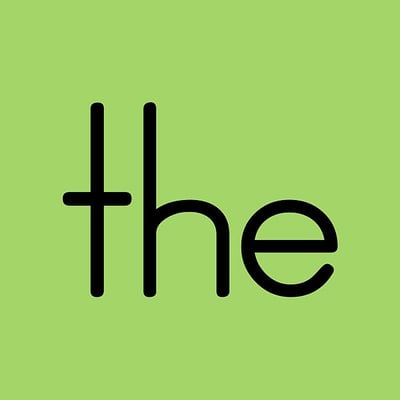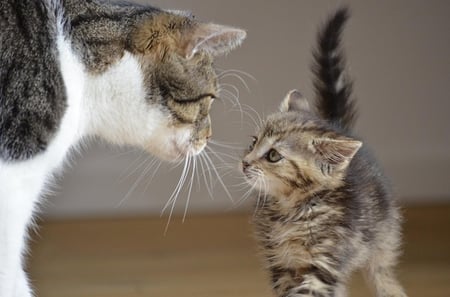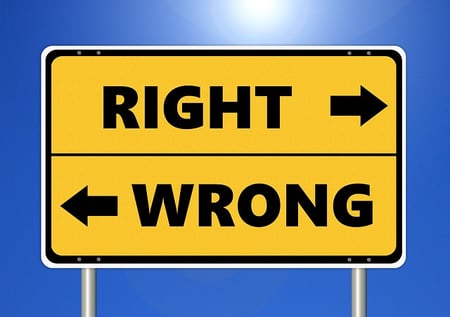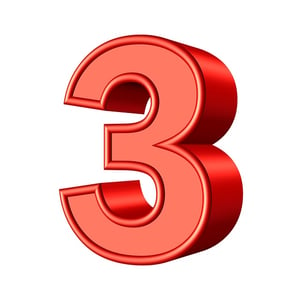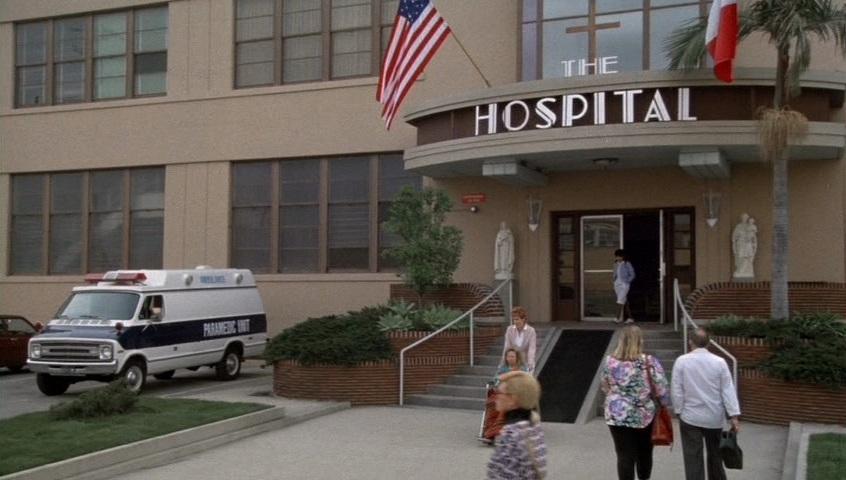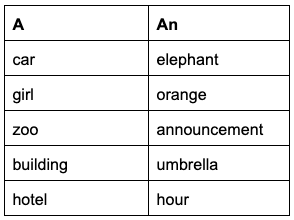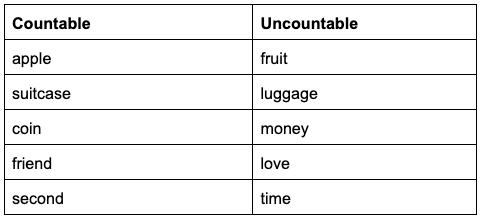When you start breaking it down, the English language is pretty complicated—especially if you’re trying to learn it from scratch! One of the most important English words to understand is the.
But what part of speech is the word the, and when should it be used in a sentence? Is the word the a preposition? Is the a pronoun? Or is the word the considered a different part of speech?
To help you learn exactly how the word the works in the English language, we’re going to do the following in this article:
- Answer the question, «What part of speech is the?»
- Explain how to use the correctly in sentences, with examples
- Provide a full list of other words that are classified as the same part of speech as the in the English language
Okay, let’s get started learning about the word the!
In the English language the word the is classified as an article, which is a word used to define a noun. (More on that a little later.)
But an article isn’t one of the eight parts of speech. Articles are considered a type of adjective, so «the» is technically an adjective as well. However, «the» can also sometimes function as an adverb in certain instances, too.
In short, the word «the» is an article that functions as both an adjective and an adverb, depending on how it’s being used. Having said that, the is most commonly used as an article in the English language. So, if you were wondering, «Is the a pronoun, preposition, or conjunction,» the answer is no: it’s an article, adjective, and an adverb!
While we might think of an article as a story that appears in a newspaper or website, in English grammar, articles are words that help specify nouns.
The as an Article
So what are «articles» in the English language? Articles are words that identify nouns in order to demonstrate whether the noun is specific or nonspecific. Nouns (a person, place, thing, or idea) can be identified by two different types of articles in the English language: definite articles identify specific nouns, and indefinite articles identify nonspecific nouns.
The word the is considered a definite article because it defines the meaning of a noun as one particular thing. It’s an article that gives a noun a definite meaning: a definite article. Generally, definite articles are used to identify nouns that the audience already knows about. Here’s a few examples of how «the» works as a definite article:
We went to the rodeo on Saturday. Did you see the cowboy get trampled by the bull?
This (grisly!) sentence has three instances of «the» functioning as a definite article: the rodeo, the cowboy, and the bull. Notice that in each instance, the comes directly before the noun. That’s because it’s an article’s job to identify nouns.
In each of these three instances, the refers to a specific (or definite) person, place, or thing. When the speaker says the rodeo, they’re talking about one specific rodeo that happened at a certain place and time. The same goes for the cowboy and the bull: these are two specific people/animals that had one kinda terrible thing happen to them!
It can be a bit easier to see how definite articles work if you see them in the same sentence as an indefinite article (a or an). This sentence makes the difference a lot more clear:
A bat flew into the restaurant and made people panic.
Okay. This sentence has two articles in it: a and the. So what’s the difference? Well, you use a when you’re referring to a general, non-specific person, place, or thing because its an indefinite article. So in this case, using a tells us this isn’t a specific bat. It’s just a random bat from the wild that decided to go on an adventure.
Notice that in the example, the writer uses the to refer to the restaurant. That’s because the event happened at a specific time and at a specific place. A bat flew into one particular restaurant to cause havoc, which is why it’s referred to as the restaurant in the sentence.
The last thing to keep in mind is that the is the only definite article in the English language, and it can be used with both singular and plural nouns. This is probably one reason why people make the mistake of asking, «Is the a pronoun?» Since articles, including the, define the meaning of nouns, it seems like they could also be combined with pronouns. But that’s not the case. Just remember: articles only modify nouns.
Adjectives are words that help describe nouns. Because «the» can describe whether a noun is a specific object or not, «the» is also considered an adjective.
The as an Adjective
You know now that the is classified as a definite article and that the is used to refer to a specific person, place, or thing. But defining what part of speech articles are is a little bit tricky.
There are eight parts of speech in the English language: nouns, pronouns, verbs, adverbs, adjectives, prepositions, conjunctions, and interjections. The thing about these eight parts of speech in English is that they contain smaller categories of types of words and phrases in the English language. Articles are considered a type of determiner, which is a type of adjective.
Let’s break down how articles fall under the umbrella of «determiners,» which fall under the umbrella of adjectives. In English, the category of «determiners» includes all words and phrases in the English language that are combined with a noun to express an aspect of what the noun is referring to. Some examples of determiners are the, a, an, this, that, my, their, many, few, several, each, and any. The is used in front of a noun to express that the noun refers to a specific thing, right? So that’s why «the» can be considered a determiner.
And here’s how determiners—including the article the—can be considered adjectives. Articles and other determiners are sometimes classified as adjectives because they describe the nouns that they precede. Technically, the describes the noun it precedes by communicating specificity and directness. When you say, «the duck,» you’re describing the noun «duck» as referring to a specific duck. This is different than saying a duck, which could mean any one duck anywhere in the world!
When «the» comes directly before a word that’s not a noun, then it’s operating as an adverb instead of an adjective.
The as an Adverb
Finally, we mentioned that the can also be used as an adverb, which is one of the eight main parts of speech we outlined above. Adverbs modify or describe verbs, adjectives, or other adverbs, but never modify nouns.
Sometimes, the can be used to modify adverbs or adjectives that occur in the comparative degree. Adverbs or adjectives that compare the amounts or intensity of a feeling, state of being, or action characterizing two or more things are in the comparative degree. Sometimes the appears before these adverbs or adjectives to help convey the comparison!
Here’s an example where the functions as an adverb instead of an article/adjective:
Lainey believes the most outrageous things.
Okay. We know that when the is functioning as an adjective, it comes before a noun in order to clarify whether it’s specific or non-specific. In this case, however, the precedes the word most, which isn’t a noun—it’s an adjective. And since an adverb modifies an adjective, adverb, or verb, that means the functions as an adverb in this sentence.
We know that can be a little complicated, so let’s dig into another example together:
Giovanni’s is the best pizza place in Montana.
The trick to figuring out whether the article the is functioning as an adjective or an adverb is pretty simple: just look at the word directly after the and figure out its part of speech. If that word is a noun, then the is functioning as an adjective. If that word isn’t a noun, then the is functioning like an adverb.
Now, reread the second example. The word the comes before the word best. Is best a noun? No, it isn’t. Best is an adjective, so we know that the is working like an adverb in this sentence.
How to Use The Correctly in Sentences
An important part of answering the question, «What part of speech is the word the?» includes explaining how to use the correctly in a sentence. Articles like the are some of the most common words used in the English language. So you need to know how and when to use it! And since using the as an adverb is less common, we’ll provide examples of how the can be used as an adverb as well.
Using The as an Article
In general, it is correct and appropriate to use the in front of a noun of any kind when you want to convey specificity. It’s often assumed that you use the to refer to a specific person, place, or thing that the person you’re speaking to will already be aware of. Oftentimes, this shared awareness of who, what, or where «the» is referring to is created by things already said in the conversation, or by context clues in a given social situation.
Let’s look at an example here:
Say you’re visiting a friend who just had a baby. You’re sitting in the kitchen at your friend’s house while your friend makes coffee. The baby, who has been peacefully dozing in a bassinet in the living room, begins crying. Your friend turns to you and asks, «Can you hold the baby while I finish doing this?»
Now, because of all of the context surrounding the social situation, you know which baby your friend is referring to when they say, the baby. There’s no need for further clarification, because in this case, the gives enough direct and specific meaning to the noun baby for you to know what to do!
In many cases, using the to define a noun requires less or no awareness of an immediate social situation because people have a shared common knowledge of the noun that the is referring to. Here are two examples:
Are you going to watch the eclipse tomorrow?
Did you hear what the President said this morning?
In the first example, the speaker is referring to a natural phenomenon that most people are aware of—eclipses are cool and rare! When there’s going to be an eclipse, everyone knows about it. If you started a conversation with someone by saying, «Are you going to watch the eclipse tomorrow?» it’s pretty likely they’d know which eclipse the is referring to.
In the second example, if an American speaking to another American mentions what the President said, the other American is likely going to assume that the refers to the President of the United States. Conversely, if two Canadians said this to one another, they would likely assume they’re talking about the Canadian prime minister!
So in many situations, using the before a noun gives that noun specific meaning in the context of a particular social situation.
Using The as an Adverb
Now let’s look at an example of how «the» can be used as an adverb. Take a look at this sample sentence:
The tornado warning made it all the more likely that the game would be canceled.
Remember how we explained that the can be combined with adverbs that are making a comparison of levels or amounts of something between two entities? The example above shows how the can be combined with an adverb in such a situation. The is combined with more and likely to form an adverbial phrase.
So how do you figure this out? Well, if the words immediately after the are adverbs, then the is functioning as an adverb, too!
Here’s another example of how the can be used as an adverb:
I had the worst day ever.
In this case, the is being combined with the adverb worst to compare the speaker’s day to the other days. Compared to all the other days ever, this person’s was the worst…period. Some other examples of adverbs that you might see the combined with include all the better, the best, the bigger, the shorter, and all the sooner.
One thing that can help clarify which adverbs the can be combined with is to check out a list of comparative and superlative adverbs and think about which ones the makes sense with!
3 Articles in the English Language
Now that we’ve answered the question, «What part of speech is the?», you know that the is classified as an article. To help you gain a better understanding of what articles are and how they function in the English language, here’s a handy list of 3 words in the English language that are also categorized as articles.
|
Article |
Type of Article |
What It Does |
Example Sentence |
|
The |
Definite Article |
Modifies nouns by giving them a specific meaning |
Please fold the laundry. Do you want to go to the concert? |
|
A |
Indefinite Article |
Modifies a noun that refers to a general idea; appears before nouns that begin with a consonant. |
Do you want to go to a concert? |
|
An |
Indefinite Article |
Modifies a noun that refers to a general idea; appears before nouns that begin with a vowel. |
Do you want to go to an arcade? Let’s get an iguana. |
What’s Next?
If you’re looking for more grammar resources, be sure to check out our guides on every grammar rule you need to know to ace the SAT (or the ACT)!
Learning more about English grammar can be really helpful when you’re studying a foreign language, too. We highly recommend that you study a foreign language in high school—not only is it great for you, it looks great on college applications, too. If you’re not sure which language to study, check out this helpful article that will make your decision a lot easier.
Speaking of applying for college…one of the most important parts of your application packet is your essay. Check out this expert guide to writing college essays that will help you get into your dream school.
Need more help with this topic? Check out Tutorbase!
Our vetted tutor database includes a range of experienced educators who can help you polish an essay for English or explain how derivatives work for Calculus. You can use dozens of filters and search criteria to find the perfect person for your needs.
Have friends who also need help with test prep? Share this article!
About the Author
Ashley Sufflé Robinson has a Ph.D. in 19th Century English Literature. As a content writer for PrepScholar, Ashley is passionate about giving college-bound students the in-depth information they need to get into the school of their dreams.
In English, the definite article the is a determiner that refers to particular nouns.
As Laurel J. Brinton has noted, «There are several different uses for each article, articles are often omitted, and there are dialectal differences in the use of articles. Thus, article usage can be an area of grammar which is very difficult for non-native speakers to master» (The Linguistic Structure of Modern English, 2010).
Examples of ‘the’ in Sentences
- «She closed the carton carefully. First, she kissed her father, then she kissed her mother. Then she opened the lid again, lifted the pig out, and held it against her cheek.»
(E.B. White, Charlotte’s Web. Harper, 1952) - «Now, as always, the most automated appliance in a household is the mother.»
(Beverly Jones, 1970) - «Horseshoes are lucky. Horses have four bits of lucky nailed to their feet. They should be the luckiest animals in the world. They should rule the country.»
(Eddie Izzard, Definite Article, 1996) - «Writing is a solitary occupation. Family, friends, and society are the natural enemies of the writer.»
(Jessamyn West) - «The greatest part of a writer’s time is spent in reading.»
(Samuel Johnson, quoted by James Boswell in The Life of Samuel Johnson, 1791) - «I’m a great believer in luck, and I find the harder I work, the more I have of it.»
(Thomas Jefferson) - «It is tempting, if the only tool you have is a hammer, to treat everything as if it were a nail.»
(Abraham Maslow, The Psychology of Science: A Reconnaissance. Harper, 1966) - «You have been in every prospect I have ever seen since—on the river, on the sails of the ships, on the marshes, in the clouds, in the light, in the darkness, in the wind, in the woods, in the sea, in the streets.»
(Charles Dickens, Great Expectations, 1861) - «The barbarians come out at night. Before darkness falls the last goat must be brought in, the gates barred, a watch set in every lookout to call the hours.»
(J.M. Coetzee, Waiting for the Barbarians. Secker & Warburg, 1980)
The Various Pronunciations of ‘the’
«The pronunciation of the definite article changes, depending upon the initial sound of the word that it precedes. If the word begins with a consonant sound, the e in the is pronounced ‘uh’: the (thuh) ball, the (thuh) bat. If the word begins with a vowel sound, the e makes a long vowel sound like in sweet: the (thee) automobile, the (thee) exorcist.»
(Michael Strumpf and Auriel Douglas, The Grammar Bible. Henry Holt, 2004)
Major Uses of ‘the’
«In broad outline, the major uses of the are the following:
1. for something previously mentioned: yesterday I read a book . . . the book was about space travel (This is the anaphoric, or ‘pointing back,’ function of the definite article);
2. for a unique or fixed referent: the Prime Minister, the Lord, the Times, the Suez Canal;
3. for a generic referent: (I love) the piano, (We are concerned about) the unemployed;
4. for something which is part of the immediate socio-physical context or generally known: the doorbell, the kettle, the sun, the weather;
5. for something identified by a modifying expression either preceding or immediately following the noun: the gray horse, the house at the end of the block; and
6. for converting a proper noun to a common noun: the England he knew, the Shakespeare of our times, the Hell I suffered.»
(Laurel J. Brinton and Donna M. Brinton, The Linguistic Structure of Modern English. John Benjamins, 2010)
Use of the Definite Article Before Familiar Nouns
«Definite articles are . . . used when the speaker assumes that because the listener belongs to the same community, he or she shares specific knowledge of their surroundings. For example, if two people who work in the same place are discussing where to meet for lunch, one of them might say something like the first sentence in (36):
Rebecca: Let’s meet at the cafeteria at 12:15.
Paul: Okay, I’ll see you then.
Here, the definite article is used because both speakers are part of the same work community; the cafeteria is part of their shared knowledge.»
(Ron Cowan, The Teacher’s Grammar of English. Cambridge University Press, 2008)
Definite Articles Before Proper Names
«We only use proper names with a stressed definite article when the person is famous or when we doubt his identity in spite of knowing his name, as in Are you THE Bill Hunter?, implying that there may be different persons of the same name but one is better known than the others. . . .
«The situation is different with geographical names, or toponyms, which are notorious for their seemingly unsystematic use: some have no article, others have the definite article. Whether a geographical name is used with or without a definite article is often a matter of historical accident. . . .
«The names of most countries such as Canada take no article, which reflects their conceptualisation of a clearly bounded political entity. Countries or geographical areas that are seen as collections of political units take a plural proper name with the definite article, as in the United States, the Netherlands, and the Baltics.
«A clear instance of a semantic opposition between the zero-article form and the definite article is found in the names of states such as Ohio and names of rivers such as the Ohio. States are clearly bounded political entities, while rivers are natural phenomena that may stretch for hundreds, even thousands of miles so that we do not have their overall extension in mind. Most river names, therefore, require the definite article to mark an unbounded entity as a unique referent.»
(Günter Radden and René Dirven, Cognitive English Grammar. John Benjamins, 2007)
The Most Common Word
«The is the most commonly used word in the English language, occurring nearly 62,000 times in every million words written or uttered—or about once in every 16 words. That’s more than twice as often as the runner-up, of. . . .
«Americans do have a thing for the word the. We say ‘in the hospital’ and ‘in the spring’; the British sensibly omit the article. They favor collective or purely regional sports team names, such as Manchester United or Arsenal, while we have the New York Yankees, the Los Angeles Angels (which when you translate the Spanish becomes ‘the the Angels Angels’), and such syntactical curiosities as the Utah Jazz and the Orlando Magic.»
(Ben Yagoda, When You Catch an Adjective, Kill It. Broadway Books, 2007)
Usage Tip From David Marsh
«Leaving ‘the’ out often reads like jargon: say the conference agreed to do something, not ‘conference agreed’; the government has to do, not ‘government has to’; the Super League (rugby), not ‘Super League.'»
(David Marsh, Guardian Style. Guardian Books, 2007)
The Lighter Side of the Definite Article
«What do Alexander the Great and Winnie the Pooh have in common?
«They have the same middle name.»
(Ted Cohen, Jokes: Philosophical Thoughts on Joking Matters. The University of Chicago Press, 1999)
From Wikipedia, the free encyclopedia
The () is a grammatical article in English, denoting persons or things already mentioned, under discussion, implied or otherwise presumed familiar to listeners, readers, or speakers. It is the definite article in English. The is the most frequently used word in the English language; studies and analyses of texts have found it to account for seven percent of all printed English-language words.[1] It is derived from gendered articles in Old English which combined in Middle English and now has a single form used with pronouns of any gender.[a] The word can be used with both singular and plural nouns, and with a noun that starts with any letter. This is different from many other languages, which have different forms of the definite article for different genders or numbers.
Pronunciation
In most dialects, «the» is pronounced as /ðə/ (with the voiced dental fricative /ð/ followed by a schwa) when followed by a consonant sound, and as /ðiː/ (homophone of pronoun thee) when followed by a vowel sound or used as an emphatic form.[2]
Modern American and New Zealand English have an increasing tendency to limit usage of /ðiː/ pronunciation and use /ðə/, even before a vowel.[3][4]
Sometimes the word «the» is pronounced /ðiː/, with stress, to emphasise that something is unique: «he is the expert», not just «an» expert in a field.
Adverbial
Definite article principles in English are described under «Use of articles». The, as in phrases like «the more the better», has a distinct origin and etymology and by chance has evolved to be identical to the definite article.[5]
Article
The and that are common developments from the same Old English system. Old English had a definite article se (in the masculine gender), sēo (feminine), and þæt (neuter). In Middle English, these had all merged into þe, the ancestor of the Modern English word the.[6]
Geographic usage
An area in which the use or non-use of the is sometimes problematic is with geographic names:
- notable natural landmarks – rivers, seas, mountain ranges, deserts, island groups (archipelagoes) and so on – are generally used with a «the» definite article (the Rhine, the North Sea, the Alps, the Sahara, the Hebrides).
- continents, individual islands, administrative units and settlements mostly do not take a «the» article (Europe, Jura, Austria (but the Republic of Austria), Scandinavia, Yorkshire (but the County of York), Madrid).
- beginning with a common noun followed by of may take the article, as in the Isle of Wight or the Isle of Portland (compare Christmas Island), same applies to names of institutions: Cambridge University, but the University of Cambridge.
- Some place names include an article, such as the Bronx, The Oaks, The Rock, The Birches, The Harrow, The Rower, The Swan, The Valley, The Farrington, The Quarter, The Plains, The Dalles, The Forks, The Village, The Village (NJ), The Village (OK), The Villages, The Village at Castle Pines, The Woodlands, The Pas, the Vatican, The Hyde, the West End, the East End, The Hague, or the City of London (but London). Formerly e.g. Bath, Devizes or White Plains.[7]
- generally described singular names, the North Island (New Zealand) or the West Country (England), take an article.
Countries and territorial regions are notably mixed, most exclude «the» but there are some that adhere to secondary rules:
- derivations from collective common nouns such as «kingdom», «republic», «union», etc.: the Central African Republic, the Dominican Republic, the United States, the United Kingdom, the Soviet Union, the United Arab Emirates, including most country full names:[8][9] the Czech Republic (but Czechia), the Russian Federation (but Russia), the Principality of Monaco (but Monaco), the State of Israel (but Israel) and the Commonwealth of Australia (but Australia).[10][11][12]
- countries in a plural noun: the Netherlands, the Falkland Islands, the Faroe Islands, the Cayman Islands, the Philippines, the Comoros, the Maldives, the Seychelles, Saint Vincent and the Grenadines, and the Bahamas.
- Singular derivations from «island» or «land» that hold administrative rights – Greenland, England, Christmas Island and Norfolk Island – do not take a «the» definite article.
- derivations from mountain ranges, rivers, deserts, etc., are sometimes used with an article, even for singular (the Lebanon, the Sudan, the Yukon, the Congo).[13] This usage is in decline, The Gambia remains recommended whereas use of the Argentine for Argentina is considered old-fashioned. Ukraine is occasionally referred to as the Ukraine, a usage that was common during the 20th century and during Soviet rule, but this is considered incorrect and possibly offensive in modern usage.[14][15][16] Sudan (but the Republic of the Sudan) and South Sudan (but the Republic of South Sudan) are written nowadays without the article.
Ye form
In Middle English, the (þe) was frequently abbreviated as a þ with a small e above it, similar to the abbreviation for that, which was a þ with a small t above it. During the latter Middle English and Early Modern English periods, the letter thorn (þ) in its common script, or cursive, form came to resemble a y shape. With the arrival of movable type printing, the substitution of ⟨y⟩ for ⟨Þ⟩ became ubiquitous, leading to the common «ye«, as in ‘Ye Olde Curiositie Shoppe’. One major reason for this was that ⟨y⟩ existed in the printer’s types that William Caxton and his contemporaries imported from Belgium and the Netherlands, while ⟨Þ⟩ did not.[17] As a result, the use of a y with an e above it () as an abbreviation became common. It can still be seen in reprints of the 1611 edition of the King James Version of the Bible in places such as Romans 15:29 or in the Mayflower Compact. Historically, the article was never pronounced with a y sound even when it was so written.
Trademark
Ohio State University registered a trademark allowing the university to use «THE» on casual and athletic clothing. The university, often referred to as «The Ohio State University», had used «THE» on clothing since 2005, but took steps to register the trademark in August 2019 after the Marc Jacobs company attempted to do the same. In August 2021 Ohio State and Marc Jacobs agreed the high-end fashion retailer could use «THE» on its merchandise, which was different from what the university would sell. Still, the university took almost an additional year to convince the United States Patent and Trademark Office that the use of «the» was «more than … ornamental».[18]
Abbreviations
Since «the» is one of the most frequently used words in English, at various times short abbreviations for it have been found:
- Barred thorn: the earliest abbreviation, it is used in manuscripts in the Old English language. It is the letter þ with a bold horizontal stroke through the ascender, and it represents the word þæt, meaning «the» or «that» (neuter nom. / acc.).
- þͤ and þͭ (þ with a superscript e or t) appear in Middle English manuscripts for «þe» and «þat» respectively.
- yͤ and yͭ are developed from þͤ and þͭ and appear in Early Modern manuscripts and in print (see Ye form).
Occasional proposals have been made by individuals for an abbreviation. In 1916, Legros & Grant included in their classic printers’ handbook Typographical Printing-Surfaces, a proposal for a letter similar to Ħ to represent «Th», thus abbreviating «the» to ħe.[19]
In Middle English, the (þe) was frequently abbreviated as a þ with a small e above it, similar to the abbreviation for that, which was a þ with a small t above it. During the latter Middle English and Early Modern English periods, the letter thorn (þ) in its common script, or cursive form, came to resemble a y shape. As a result, the use of a y with an e above it () as an abbreviation became common. This can still be seen in reprints of the 1611 edition of the King James Version of the Bible in places such as Romans 15:29, or in the Mayflower Compact. Historically, the article was never pronounced with a y sound, even when so written.
The word «The» itself, capitalised, is used as an abbreviation in Commonwealth countries for the honorific title «The Right Honourable», as in e.g. «The Earl Mountbatten of Burma», short for «The Right Honourable Earl Mountbatten of Burma», or «The Prince Charles».[20]
Notes
- ^ masculine, feminine, or neuter.
References
- ^ Norvig, Peter. «English Letter Frequency Counts: Mayzner Revisited».
- ^ «the – definition». Merriam Webster Online Dictionary.
- ^ Ladefoged, Peter; Johnson, Keith (2010). A Course in Phonetics (6th ed.). Boston: Wadsworth. p. 110.
- ^ Hay, Jennifer (2008). New Zealand English. Edinburgh: Edinburgh University Press. p. 44.
- ^ «the, adv.1.» OED Online. Oxford University Press, March 2016. Web. 11 March 2016.
- ^ «The and That Etymologies». Online Etymology Dictionary. Retrieved 18 June 2015.
- ^ «Why is it called The Hague?». 27 October 2009.
- ^ «Countries: Designations and abbreviations to use».
- ^ «FAO Country Profiles». www.fao.org.
- ^ «Using ‘the’ with the Names of Countries».
- ^ «List of Countries, Territories and Currencies».
- ^ «UNGEGN World Geographical Names».
- ^ Swan, Michael How English Works, p. 25
- ^ «Ukraine or the Ukraine: Why do some country names have ‘the’?». BBC News. 2012-06-07. Retrieved 2022-07-08.
- ^ Steinmetz, Katy (2014-03-05). «Ukraine, Not the Ukraine: The Significance of Three Little Letters». Time. Retrieved 2022-07-08.
- ^ Mellen, Ruby (2019-10-01). «It’s Ukraine, not ‘the’ Ukraine. And Ukrainians want you to get it right». Washington Post. ISSN 0190-8286. Retrieved 2022-07-08.
- ^ Hill, Will (30 June 2020). «Chapter 25: Typography and the printed English text» (PDF). The Routledge Handbook of the English Writing System. p. 6. ISBN 9780367581565.
The types used by Caxton and his contemporaries originated in Holland and Belgium, and did not provide for the continuing use of elements of the Old English alphabet such as thorn <þ>, eth <ð>, and yogh <ʒ>. The substitution of visually similar typographic forms has led to some anomalies which persist to this day in the reprinting of archaic texts and the spelling of regional words. The widely misunderstood ‘ye’ occurs through a habit of printer’s usage that originates in Caxton’s time, when printers would substitute the <y> (often accompanied by a superscript <e>) in place of the thorn <þ> or the eth <ð>, both of which were used to denote both the voiced and non-voiced sounds, /ð/ and /θ/ (Anderson, D. (1969) The Art of Written Forms. New York: Holt, Rinehart and Winston, p 169)
- ^ Skubby, Aaron (June 22, 2022). «Ohio State University secures trademark for use of the word ‘THE’ on clothing». The Columbus Dispatch. Retrieved June 25, 2022.
- ^ «Missed Opportunity for Ligatures».
- ^ ‘The Prefix «The»‘. In Titles and Forms of Address, 21st ed., pp. 8–9. A & C Black, London, 2002.
External links
- The – Merriam-Webster
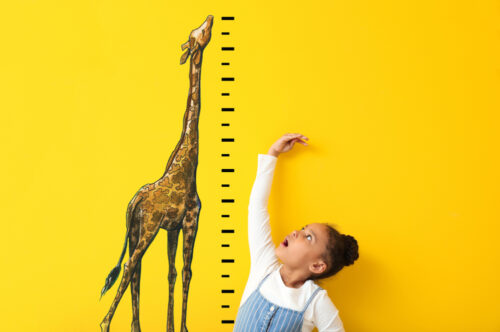
By
Last updated:
August 16, 2022
One of the most important words in the English language is only three little letters.
It’s the word “the”!
It might be small, but knowing when to use “the” in English can be a big problem for learners.
Let’s find out everything there is to know about this small but powerful word!
Contents
- Why “The” Is Essential in English
- How to Practice Using “The” in English
-
- Learn it from real-world resources.
- Use “the” in conversation.
- Try writing sentences with “the.”
- When to Use “The” in English: The Definitive Guide
-
- Getting specific.
-
- Hearing unspoken words.
- British versus American English usage.
- Talking generally about a group.
- Talking about some countries.
- Talking about geography.
- Highlighting uniqueness.
- Making something special.
- Giving importance.
- Keeping things in order.
- When Not to Use “The”
-
- Talking about some proper names.
- Using an “understood” possessive.
- Speaking about something in general.
- When to Use “A” or “An” Instead of “The”
-
- Talking about single, non-specific items.
- Matching “a” or “an” to the words they describe.
-
- Vowels that don’t sound like vowels.
- The letter “h.”
- “Historic(al)” debate.
Why “The” Is Essential in English
Over 150 languages in the world have no word that means the same thing as “the” in English. So, it might be hard to imagine why English needs the word “the” at all.
Modern English, though, has a very different grammar than many other languages. It doesn’t have a lot of cases (changes in words that show changes in meaning).
For example, in Romanian, copil is “(a) child,” but copilul is “the child.” Romanian doesn’t use a separate word for “the,” because “the” is part of the word.
Many languages work in a similar way to Romanian: You don’t learn a separate word for “the,” but you learn to change the words themselves to reflect (show) their meanings.
Instead of changing the words themselves, English depends on little words such as “the” to express certain meanings. These are called articles and include the words “the,” “a” and “an.”
The words “a” and “an” are indefinite articles because they’re used to talk about non-specific things. The word “the” is a definite article and it’s used to talk about specific things.
When you use “the” correctly in English, you accomplish (do) two very important things:
- Make your meaning clear. Using “the”—or, sometimes, not using it—can be a way to say more clearly what you mean. We’ll talk in detail about when and why you should use “the” in English.
- Sound more like a native. Native English speakers expect to hear “the” often, but not just used randomly (for no reason). When you use “the” correctly, your English will sound more fluent.
How to Practice Using “The” in English
To get good at using “the” the right way, even as a beginner to English, you’ll need to practice it. This means both seeing and hearing how it’s used by native speakers, and trying to use it yourself.
Learn it from real-world resources.
When you’re first getting familiar with “the,” try to get an idea of how it’s used by English speakers.
Look for it in simple books, such as children’s books that help you learn English grammar.
Listen for it in English-language songs.
Hear it used in English conversations.
Watch and listen for it in real-world English videos, like the ones that you’ll find in the FluentU language learning program. Look up “the” in the video dictionary to see all its in-context usage examples across our video library, then practice it with personalized quizzes and flashcards.
Use “the” in conversation.
When you practice speaking in English, pay attention to when you should use “the.”
If you’re talking with someone, face-to-face or on the phone, listen for when the other person uses “the.” Then, try to mirror (copy) them.
For example, if your friend were to say, “The weather here is terrible,” you could say, “Why is the weather so bad?”
Try writing sentences with “the.”
Include “the” in the sentences you create when you practice English writing.
If you’re not sure when to use “the” or a similar word (like “a” or “an”), you can try grammar exercises to help you see how “the” should—or shouldn’t—be used.
These exercises will also help you figure out when to use no article (words like “the,” “a” or “an”):
- The English 4U Articles Exercise has shorter sentences, and is better for beginners studying British English.
- In the English Articles Final Test from EnglishPage.com, the sentences in Part 1 are shorter and simpler. The sentences in Part 2 are more for intermediate (mid-level) learners.
- EnglishCurrent has exercises for learners at all levels to practice using “the,” “an” or “a.”
When to Use “The” in English: The Definitive Guide
Knowing when to use “the” in English isn’t always easy. We’ll look at some examples and guidelines (general rules).
There are many reasons to use “the” in English. Here are a few common ones.
Getting specific.
Especially in American English, “the” is used to talk about a specific person, place or thing.
Let’s say you were having lunch at a restaurant. If there were soups, salads, burgers and sandwiches on the menu, you could say, “I’ll have the spinach salad and the mushroom burger.”
The restaurant would likely have more than one salad or burger available (ready), but you’re using “the” to state that you want those specific menu items, based on all other possible choices.
Here are a few more examples of this very common way to use the word “the”:
- “I want to adopt the puppy we saw yesterday.” (You don’t just want any puppy, you want that specific puppy.)
- “I’ll get the kids ready to go outside.” (You’re referring to a group of specific kids, maybe yours or ones who you’re responsible for.)
- “Did you play the game all night?” (You’re interested in a specific game, not any game—most likely one that you’ve spoken about before.)
Hearing unspoken words.
You might hear a friend say, “I’m going to the store to get some potatoes.” Since there is more than one store, which one would be “the” store?
Later that night, you’re watching the news. You hear that someone was injured (hurt), and “taken to the hospital.” Again, you know that there is more than one hospital, so this is a little confusing.
It helps to understand that there are unspoken words in these sentences.
For example, when we say, “the store” or “the hospital,” we might really be saying “the [closest] store” or “the [local] hospital.” The movie “The Naked Gun” makes fun of this, giving their hospital the literal name “The Hospital” (but your local hospital is likely to have an actual name!).
You could also say, “I’m going to the office” when you mean, “I’m going to the office where I work.” That’s another example of hidden or unspoken words.
British versus American English usage.
For certain words, such as “hospital,” British and American English use of the word “the” will be different. Let’s look at a few examples:
| Word(s)/Concept(s) | American English | British English |
|---|---|---|
| Hospital | «I was in the hospital.» | «I was in hospital.» |
| Market | “We went to the market.” | “We went to market.” |
| Seasons of the Year | “He wears warm clothes in the winter.” | “He wears warm clothes in winter.” |
| Days of the Week | “She went there on Monday.” | “She went there on the Monday.” |
Try to focus on the rules for the type of English you’re studying, but don’t worry too much about these differences.
Fluent speakers of American English and British English can usually understand each other fairly easily. So, no matter which set of rules you follow for these special words, native and fluent English speakers should still understand you.
Talking generally about a group.
You can use “the” with a singular noun to talk about a whole group.
So, for instance, you could say, “The cat is a furry animal.” Of course, there are many, many cats in the world. But when you say, “The cat is a furry animal,” people will know that you’re talking about cats as a species (special group).
“The” is used to talk about other groups in general:
- “The English and the Italians played in the World Cup.”
- “The elderly (older people) have different needs than the young.”
Talking about some countries.
English doesn’t normally use “the” with country names. For example, you would not say, “the Germany,” “the France” or “the Croatia.” However, there are exceptions (examples that don’t follow the rules).
We do use “the” in English when talking about countries comprised (made up) of many lands, territories, states or islands:
- The Philippines
- The Bahamas
- The Netherlands
Talking about geography.
You would use “the” in front of names of oceans, rivers, seas, straits and gulfs—as well as mountain ranges:
- The Indian Ocean
- The Mississippi River
- The Caspian Sea
- The Bering Strait
- The Gulf of Mexico
- The Pyrenees
A few bays would also use “the,” usually when their names follow the pattern, “the Bay of ______”:
- The Bay of Bengal
- The Bay of Fundy
- The Bay of Kotor
Natives to the American states of Maryland and Virginia almost always call their shared bay “the Chesapeake Bay,” even though it doesn’t follow the usual pattern.
San Francisco Bay and Paradise Bay, on the other hand, would not use “the.”
Highlighting uniqueness.
When there’s only one of something, we use “the” when we’re talking about it.
There’s only one universe—so we say that it’s the universe.
In the universe, there are billions of stars—but only one sun around which our planet orbits (circles). So, we call it “the sun.”
There are billions of planets in the universe. But there is only one home planet for humans right now, which we call “the earth.”
Making something special.
Sometimes, very ordinary English words are used to talk about something special and unique. For instance, 50 states make up a particular country called “the United States.” And the leader of that country—the President—lives in a pale building we call “the White House.”
Both “white” and “house” are ordinary (common) words, as are “united” and “states”—so we use “the” to make it clear that we’re talking about something very specific.
The same is true when we talk about “the European Union,” “the United Nations,” “the United Kingdom” or “the World Cup.”
Giving importance.
Adding “the” can show importance.
During a heated discussion (talk), you might say, “That’s not the point.”
When you say this, you’re telling your listener know that they aren’t understanding the main point of your argument.
If you say, “You’re the love of my life,” you’re telling someone special that they’re the greatest love in your entire (whole) life. Even if you’ve been in love before, that person is “the one” for you.
“The one” isn’t always about romance. Sometimes, it simply means, “the one that I want” or “the one you’re talking about.”
Keeping things in order.
“The” is often used when describing the order of things. It’s used with ordinal numbers in English, like “first,” “second,” “third” or “eighteenth.”
“The” can be used with words like “most,” “only,” “best” and “worst.” (These types of words, which change the meaning of nouns and other words in English, are called adjectives.)
For example, in a romantic moment, you might say, “The first time we met, I knew you were the only one for me. And I knew this would be the last time I’d fall in love. The worst days of my life are behind me now. I want to spend the best part of my life with you.”
You can also use “the” with dates. For example, “The United States celebrates Independence Day on the fourth of July.” Or, “Children dress up for Halloween on the thirty-first of October.” (The word “day” is unspoken. You’d really be saying, “the fourth day of July” or “the thirty-first day of October.”)
When Not to Use “The”
It’s just as important to know when not to use “the.” There are a few guidelines for figuring this out.
Talking about some proper names.
“The” is not used with given (personal) names or family names in English, unless you’re using a last name to talk about a family group. For example, you would never say “the Mary” or “the Mr. Smith” but you can say “the Smiths are going shopping.”
For many company names, you might only add “the” when you used the full name. For instance, the full name of Disney would be “The Walt Disney Company.”
You wouldn’t use “the” unless you added something before or after the name:
- “We went to the McDonald’s down the street.”
- “I wanted the mobile I saw at the Vodafone store in High Street.”
- “The local Tesco just started selling a new brand of hot sauces.”
When you add words like “company,” “corporation” or “association” after a proper name, you can add “the” in front of the proper name.
Some proper names, like names of corporations (big companies), use the word “the” as part of their names. For example, “The Home Depot” is a large North American store that sells hardware and building supplies.
“The” is often not used with the names of schools, colleges and universities:
- “He got a degree from Harvard University.”
- “Bart and Lisa are students at Springfield Elementary School.”
- “Rydell High held a school dance.”
- “The students at Hogwarts live in four houses.”
However, if you were talking about a school with a name like “the University of Maryland” or “the University of Exeter,” you would use “the” before the word “university.”
Using an “understood” possessive.
You’ll often hear native English speakers say things like, “I’m going to work after I drive my daughter to school.”
“To work” or “to school” almost sound like verbs in their infinitive (basic, unchanged) forms.
In this case, though, “work” and “school” are both physical places. Yet, you wouldn’t use “the” in front of either “work” or “school” in this sentence.
Imagine that there are unspoken or “understood” possessives (words that show belonging) in sentences like this. So, “I’m going to work after I drive my daughter to school” could be understood as “I’m going to (my) work(place) after I drive my daughter to (her) school.”
Speaking about something in general.
When you’re talking about more than one non-specific item, like “books” or “fruits” or “vegetables,” you wouldn’t use “the.”
If you’re speaking generally about some personal qualities, such as “patience” or “kindness,” you’d leave out the word “the”:
- “Books can teach us a lot.”
- “Fruits and vegetables are good for health.”
- “Patience is a virtue.”
- “Kindness makes it easier to get along with others.”
When to Use “A” or “An” Instead of “The”
There are times when you want to talk about just one of something—and you aren’t talking about a specific something.
That’s when you’d use “a” or “an” in English.
Talking about single, non-specific items.
If you want to talk about a single item—or even a person—and you’re not talking about any special one, you can use “a” or “an” instead of “the”:
- “A boy was eating an apple while reading a book about a toy train.”
Or you might say, “I’d like a cup of coffee, please.” You’re not asking for a specific cup of coffee. Any cup of coffee at all will do.
Matching “a” or “an” to the words they describe.
“A” and “an” mean exactly the same thing and are used basically the same way.
“A” is used with words that start with consonant sounds.
“An” is used with words that start with vowel sounds.
We’ll look at this more closely—especially for cases where you have to be extra careful when choosing between “a” and “an.”
Vowels that don’t sound like vowels.
English words like “Europe,” “use” and “universe” start with a vowel, but not a vowel sound.
So you’d say, “a European country,” but not “an European vacation.”
Let’s say you were talking about how a certain word is spelled. With letter names that start with vowel sounds, you’d use “an.”
For instance, you might say, “There’s an e in the beginning of the word ‘Europe.’” But, you could then say, “The second letter in ‘Europe’ is a u.”
The letter “h.”
The letter h at the start of an English word can be a problem.
Sometimes, it’s pronounced (said) like a consonant. Think of the English words “history” and “help” and “helmet.”
Other times, the h in English silent. The first sound you hear in a word starting with an h might a vowel. In the words “hour,” “honest” and “heir,” the letter h is not pronounced.
Let’s see this in action:
- “An honest man named Harpo was an heir to the throne of Freedonia. A history of his country says that he often wore a helmet.”
“Historic(al)” debate.
A very special case is the word “historic.” Even native English speakers can’t agree whether we should use “a” or “an” with “historic.”
This is also a problem with a related word, “historical.”
The good news is that you can use either “a” or “an.” You might hear either one from native English speakers.
With the examples we’ve looked at, “the” will be less of a mystery to you.
So, the next time you speak or write in English, you’ll have a better idea whether or not to use “the,” “a” or “an.” And that’s an important step to becoming a more fluent English speaker!
Download:
This blog post is available as a convenient and portable PDF that you
can take anywhere.
Click here to get a copy. (Download)
Knowing what articles are and when to use them in English can be difficult for language learners to pick up. Especially considering that in some situations there is no article at all.
But don’t worry, we’re here to help.
In English there are three articles: a, an, and the. Today we’re going to look at what these are, the differences between them and when to use them – or not, in some cases.
Let’s go!
What is an article?
Articles are a type of determiner. They function like adjectives, as they modify the noun in the sentence. The only articles in English are ‘the’ and ‘a/an’. Yet, the tricky part is that we use them differently – and sometimes not at all.
We call ‘the’ the definite article and ‘a/an’ the indefinite article.
When to use a/an, the and no article
So when do we use articles in English? We’re going to show you some explanations, examples and activities to practise so that by the time you finish reading, you’ll be an articles pro!
Definite and indefinite articles
We use ‘the’ before a noun when:
- referring to something specific
- there is only one of something (e.g. the cathedral)
- the noun has been mentioned before
We use ‘a/an’ before a noun when:
- referring to something in general
- mentioning something for the first time
- describing someone’s profession (eg. I am a teacher)
Compare these two sentences:
Let’s watch the TV series that we love (a specific TV series that is familiar to us or that we know about.)
Let’s watch a TV series after dinner (we don’t have a specific TV series in mind – it could be any series.)
It’s important to remember that we use ‘a’ and ‘an’ differently: ‘a’ comes before a noun beginning with a consonant sound and ‘an’ comes before a noun beginning with a vowel sound. For example:
If you were observant, you may be wondering why ‘hotel’ and ‘hour’ don’t use the same indefinite article, even though they both start with ‘h’. Remember, we need to look at the starting sound, not letter, and since ‘hour’ is pronounced with a silent ‘h’, it starts with a vowel sound – which means you need ‘an’.
Here are some more examples of definite and indefinite articles:
- Somebody call a policeman!
- Did you see the film that was on Channel 4 last night?
- Would you like a glass of milk?
- I love to swim in the ocean.
- The announcement lasted for 10 minutes.
Learn more about the basics of definite and indefinite articles in this video:
No article
We never use a/an with uncountable nouns. However, ‘the’ is sometimes used with uncountable nouns in the same way it is used with plural countable nouns. This is when we want to refer to a specific object, group, or idea.
For example:
- Electricity has become more expensive recently.
- Can you pass me the sugar please?
It’s a good idea to familiarise yourself with countable and uncountable nouns so you can make the right choice of article. See the table below for examples.
However, we use ‘no article’ in other situations without grammatical rules. In this case, it’s something you have to remember.
Check out some of the following situations for knowing where you must leave out the article.
Use ‘no article’ before:
- Names of languages and nationalities: Chinese, Russian (unless referring to the population of the place e.g. ‘The Italians are known for their delicious food.’).
- Names of sports: cricket, baseball.
- Names of subjects: Art, Mathematics.
Geographical places
When it comes to geographical places, such as countries or continents, we use ‘the’ in some cases, and no article in others. Unfortunately, there aren’t any rules to help you here – you just have to familiarise yourself with the ones that need ‘the’ or not.
Do NOT use ‘the’ before:
- Lakes: Lake Geneva, Lake Placids
- Mountains: Mount Fuji, Mount Everest.
- Continents: Europe, Asia.
- Most countries: England, Sweden.
- Counties/states/provinces/regions: Oxfordshire, Catalunya, California.
- Cities, towns, villages: London, Paris.
- Islands: Bali, Hawaii.
- Street names: Main Street, 5th Avenue.
Use ‘the’ before:
- Rivers: The Nile, The Mississippi.
- Mountain ranges: The Andes, The Pyrenees.
- Deserts: The Sahara, The Atacama.
- Oceans and seas: The Pacific, The Mediterranean.
- Groups of islands: The Maldives, The Seychelles.
- Some countries: The USA, The Netherlands.
- Points on the globe: The Equator, The North Pole.
- Geographical areas: The Middle East, The West.
Check out some of the most common mistakes with articles in this video:
Practice
Now you know the grammar, here’s a short test for you to test your knowledge. Find the answers at the end of the blog – don’t peek!
Answer the questions with: ‘a/an’, ‘the’ or ‘no article’.
1. I love going on holiday to ____ Maldives.
2. Did you watch ____ the Mel Gibson film on TV last night?
3. Do you still live in ____ Bristol?
4. I’ve had ____ terrible headache all day.
5. The book is about someone who lives on ____ small island.
6. She lives in ____ Scotland now, but is from ____ Netherlands.
7. They speak ____ Chinese.
8. I’d love to go sailing along ____ Ganges river.
9. Who is that woman in ____ photograph?
10. Can I have _____ sugar in my coffee please?
More grammar lessons
Congratulations – now you’re an articles expert! But it doesn’t have to stop here. We’ve got plenty more grammar lessons for you to check out. Try these:
4 present tenses and how to use them
4 past tenses and when to use them
4 future tenses and how to use them
4 conditionals and when to use them
4 types of modal verbs
Quiz answers
1. the
2. the
3. no article
4. a
5. a
6. no article, the
7. no article
8. the
9. the
10. no article
Want more help with your grammar? Sign up for one of our courses!
Glossary for Language Learners
Find the following words in the article and then write down any new ones you didn’t know.
Pick up (pv): obtain, acquire, or learn something in an informal way.
Tricky (adj): difficult.
Leave out (pv): fail to include something.
Peek (v): look quickly.
Check out (pv): look at or take notice of someone or something.
pv = phrasal verb
v = verb
adj = adjective
Study English at Oxford House Barcelona
Interested in taking an English course at Oxford House Barcelona? Check all the different English classes we can offer you or contact us for more information.
Study English at Oxford House Barcelona
Interested in taking an English course at Oxford House Barcelona? Check all the different English classes we can offer you or contact us for more information.

